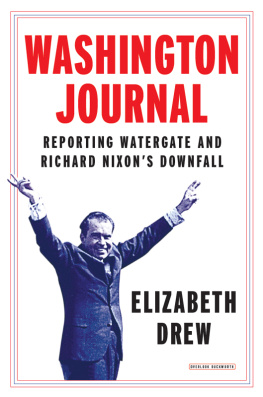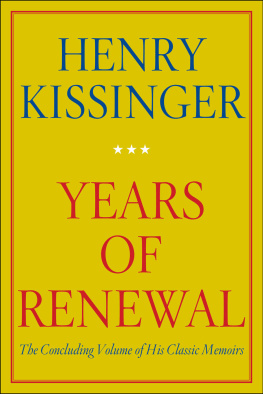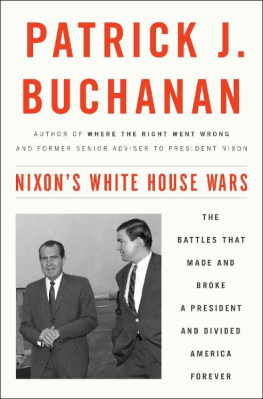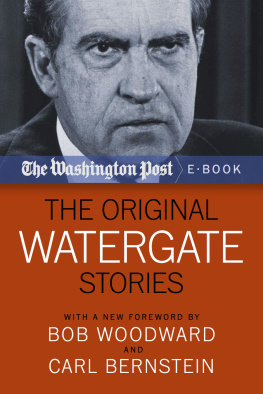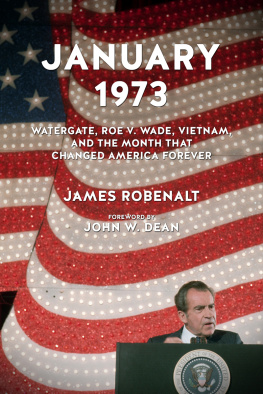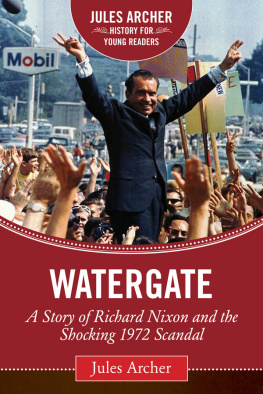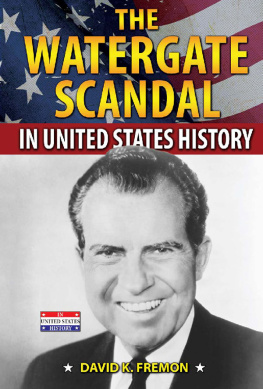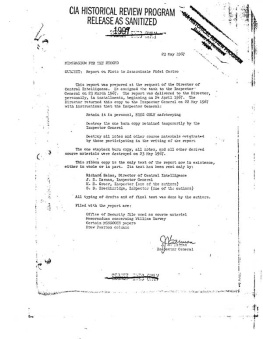

To Itzy
This edition first published in the United States and the United Kingdom in 2014 by
Overlook Duckworth, Peter Mayer Publishers, Inc.
N EW Y ORK
141 Wooster Street
New York, NY 10012
www.overlookpress.com
For bulk and special orders, please contact ,
or write us at the above address.
L ONDON
30 Calvin Street
London E1 6NW
info@duckworth-publishers.co.uk
www.ducknet.co.uk
For bulk and special orders, please contact ,
or write us at the above address.
Copyright 1974, 1975, 2014 by Elizabeth Drew
All rights reserved. No part of this publication may be reproduced or transmitted in any form or by any means, electronic or mechanical, including photocopy, recording, or any information storage and retrieval system now known or to be invented, without permission in writing from the publisher, except by a reviewer who wishes to quote brief passages in connection with a review written for inclusion in a magazine, newspaper, or broadcast.
Most of the material in this book appeared originally in The New Yorker , in slightly different form.
Library of Congress Cataloging in Publication Data
Drew, Elizabeth.
Washington journal.
Most of the material appeared originally in the New Yorker.
. Watergate Affair, 1972 - . Nixon, Richard
Milhous, 1913 - Impeachment. . Nixon, Richard
Milhous, 1913 - Resignation. I. Title.
E .D 973.924 75-9803
2 4 6 8 10 9 7 5 3 1
ISBN US: 978-1-4683-0918-8
ISBN UK: 978-0-7156-4916-9
Manufactured in the United States of America
On the day after Labor Day in 1973, I was in the office of William Shawn, the justly legendary editor of the New Yorker , for which I had begun to write a few months earlier. In his whisper of a voice he asked me what I was thinking about writing. (He never imposed a subject.) I told him that I had an intuition that within a year this country would change vice president and president. At the time, this was a seemingly outlandish thought, but I go a lot on instinct, and I just sensed it. I began with the vice president because the nearlyor not so nearlyforgotten Spiro Agnew, formerly governor of Maryland, was under criminal investigation on suspicion that hed been accepting post-facto bribes right in his vice-presidential office.
The Watergate scandal hadnt yet caught up with Nixon, but there was already plenty of evidence that serious wrongdoing had taken place in the White House and that Nixon had surrounded himself with rudderless aides willing to carry out most anything against the Presidents various real and imagined enemies.
We knew that there had been an enemies list, which we joked about but wasnt really funny: the President was willing to use the levers of government at his command, or retain outside goons to spy on, get the goods on, and destroyNixons termsthose who he saw as out to get him. Nixon confused political opponents with enemies, but his suspicions swept a much wider field. And so tailing, break-ins, wiretaps, and IRS audits, among other things, proceeded against political opponents, journalists, university presidentsall manner of people.
Shawn, whose interest level was perpetually high, was fascinated and, as usual, he landed on a point I hadnt thought of: even if the trouble stopped with Agnew, this country had no idea how to remove and install a new vice president. We could start with that and see what followed. The word impeachment was totally foreign to us thenwe were vaguely aware of some sort of unsuccessful and ill-regarded act after the Civil War. It was an alarming word that awed us. (The term hadnt yet been cheapened by the partisan and fundamentally unserious impeachment of Bill Clinton.) Shawn and I came to the conclusionsymbiotically, as I cannot honestly say if it was his idea or minethat I should write a journal of the period we were entering into that Fall. Not a diary, but a journal of reporting and insight into the events of that time. We couldnt be sure what would unfold when; we would just start and then see. Back in Washington, when I told my mentor John Gardner about this assignment, he said to me, no one will be able to go back and recapture this. Write it so that forty years from now people can say, So thats what it was like. (He actually said forty.) Thus I was writing for both a current and a future audience. As time went on, and Nixons problems deepened, Shawn called me one Saturday and said, Dont you think youd better keep going? Yes, I replied, Id better keep going. We still could have no idea how it would end, but we knew that great drama was afoot. And so I kept goinguntil Nixon climbed aboard the helicopter to take him to the plane that would carry him to San Clemente and retirement.
The reader may be struck early with a sense that these events took place in a somewhat archaic atmosphere. In fact, the rhythms of our daily working lives were quite different then: no cable television, no Internet, no Twitter. We lived in information vacuums between the morning papers and the evening news broadcast and the evening papers that existed then, and the occasional radio bulletin. News and rumor in equal measure buzzed around Washington through telephone calls and chance enounters. Did you hear? In retrospect, this was somewhat liberating: we went about our business while we awaited the next bombshell or confirmation of the latest wild rumorswhich all too often turned out to be true. As I recount in the first chapter, its harder than ever to know where reality stops and fantasty begins. Facts outran our imagination.
The journal ran in the New Yorker as sets of three parts each. Later, Joe Fox, an editor at Random House, came to see me in Washington and said that he wanted to publish the series as a book. I turned the series into a book, adding some material at the beginning, to give a backdrop as to how we had reached the situation weand Nixonwere in by that Labor Day, and the book was first published in 1975. But it fell out of print and hardback copies became almost nonexistent. It was distressful that as we were heading into what happened to be the fortieth anniversary of Nixons resignation this book was essentially unobtainable. It seemed worth keeping alive, not simply as a commemoration of Nixons resignation but as a way of looking at this extraordinary period, at what led to its dramatic climax, to remind those who lived through it and to inform those who were too young at the time what it was really like. What may appear inevitable in hindsight seemed at the time anything but. We laughed at some of the ridiculous characters and at the absurditiesbut by and large we were alarmed. It was a frightening time, and the stakes were enormous. Thus, the purpose of this book is to show what it was really like during the turbulent months that led to Nixons resignation.
To my delight, Peter Mayer of Overlook Press, with whom I had worked happily before, strongly agreed that Washington Journal should be kept alive and be offered to those who were therebut couldnt see it for all the debris, or for whom memories have fadedand those who werent. Even when I reread it Im astonished at what went on then. It looks quite different now than it did when we were in the middle of it, but no less dramatic, alarming, and even amusing in parts. And as it happens, Nixon has never really left us. He would be most surprised that hes become a cult figure, the subject of endless fascination.
I have added an Afterword about what happened to Nixon after he left officea period that very few know much if anything about. I think its about as fascinating as any other time in his life. The man didnt change. I wont spoil it here, but just say that this was the Nixon who never gave up. He just couldnt. The Afterword also provides new insights Ive had into what Watergate was actually about, some of which came as a bit of a surprise and can still shock me. This new section also provides a more comprehensive view of Nixon: what shaped him and (without delving into psychobabble) might explain his behavior that got him in such terrible troublemaking him the first president forced to leave office. I have included some important and sometimes bizarre, sometimes alarming, things we learned about Nixon in the Watergate period and after he resigned, and alsoand this was new to me when I later learned ithow Nixon very methodically climbed his way back into respectability sufficient enough that he was given a heros burial. The story of how he did this also shed new light about this most extraordinary figure.
Next page
